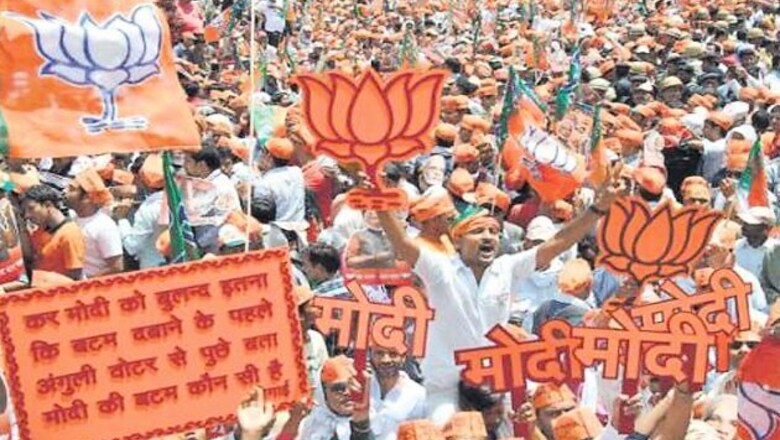
views
Thirty years ago, riding high on the sympathy wave created by the assassination of prime minister Indira Gandhi, the Congress party led by Rajiv Gandhi won a total of 414 of the 533 seats in Parliament. Of these, 295 belonged to the Congress alone, making it a single party enjoying majority in the Lower House.
On Friday, Narendra Modi gave India a similar dispensation. But 30 years is a lifetime in politics and the significance of one party ruling over the Lok Sabha is vastly different between then and now. In 1984, it was a continuum -- son taking over from a larger-than-life mother, Congress moving down just a generation, the same oligarchs lording over both party and government, and (atleast initially) same policies being peddled. One Opposition MP had then remarked: "Indira is ruling from her grave."
Thirty years later, a similar scenario has emerged but in the form of a political upheaval that has changed(perhaps forever) Indian political life. The victory of the Narendra Modi-led BJP on Friday was a sea change on every political indice that one can think of. First, it comes with the decimation of the Congress and not, like in 1984, as its evolution. Politically, the implication is massive - signifying the total replacement of one pan-India coalition by one single political entity. India has actually moved towards a single-party rule, with regional parties confined to their respective strongholds. With less than 50 seats in the Lok Sabha, Congress has been relegated to the position of a regional party too.
Second, it is now evident that the terra firma beneath the Modi wave has been a massive anti-incumbency that grew through not five, but the last 10 years. This, naturally, will propel the new rulers to tear down almost every decision and policy made by UPA I & II in the pretext of "respecting the mandate". From MNREGA to the Bharat Nirman Programme, from the nuclear deal with the US to direct benefits transfer, from export policies to direct taxation - everything can and will be reviewed or rolled back.
Third, a single-party majority in a multiple-party parliamentary democracy means fragmentation of the Opposition. And this time, the fragmentation is absolute. If a colour-coded map of the country is drawn up on the basis of Friday's results, the non-NDA parties will form just a strip running along the eastern coast, taking a U-turn in Tamil Nadu and moving up to Kerala. That may appear as an interesting line-drawing, but inside Parliament it is perfect recipe for single party dictatorship. Any bill can now be pushed through the House by the BJP, with just the margin of support being a matter of concern (if at all).
India's foreign policy, when it comes to its basic tenets, has been more or less consistent across regimes. The Modi government's brute majority makes it vulnerable to alterations and course changes. With the first prime minister-elect of this country facing a visa ban imposed by the world's only superpower, an unprecedented diplomatic situation has risen. How Modi will steer India's relations with the US and eastern Asia (of which he's an admirer) will be keenly watched. After all, he will have the political and legislative muscle to tinker with foreign policy too.
The 2014 mandate for the BJP is a mandate for Modi -- let there be no doubt about that. The party as well as the Saffron Parivar backed him to the hilt, and to an extent feel obliged to him for finally ending a 10-year Siberian winter of powerlessness. With no allies practically needed to form and run his government, Modi will be all-powerful. India's experience with all-powerful leaders has not been good. Hopefully, Monarch Modi will be an exception.




















Comments
0 comment